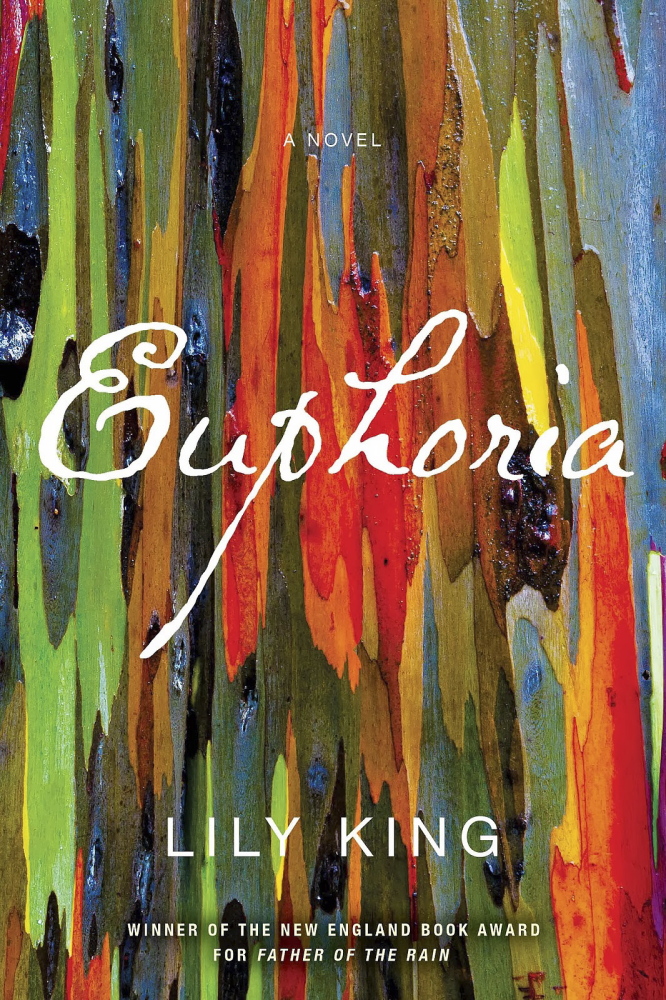Among the plethora of mysteries and assorted fiction that flow from Maine, it’s a rare novel that rises to the level of “Euphoria.”
It’s the story of three anthropologists who, early in the 1930s, go to live with a primitive tribe on an isolated island in New Guinea. Disease is rampant. The native culture is not far removed from the Stone Age. Over time, one of the three anthropologists descends into madness.
Novelist Lily King masterfully creates a fascinating, multi-layered character study of people under duress.
Main character Nell Stone is the smartest and most compassionate member of the trio. She learns the language of the island people. Children flock to her hut. Tribal women confide in her. Deep into the night, the keys of her typewriter fly as she records discoveries.
Her husband, Schuyler Fenwick, is jealous of his wife’s ability to publish her findings in prestigious anthropology journals. He turns mean and abusive as his mental health deteriorates, at one point throwing her typewriter onto the floor of their hut.
“Fen didn’t want to study the natives,” King writes in a passage from Nell’s point of view. “He wanted to be a native. His attraction to anthropology was not to puzzle out the story of humanity … It was to live without shoes and eat from his hands and fart in public.”
The third anthropologist, who lives with Fenwick and Stone, is a tall, depressive Englishman named Andrew Bangston. He admires Stone for her cheerful outlook, intellect and kindness. He knows that Fenwick is capable of hurting her, and he pleads with her to leave the island as soon as possible. Then he falls in love with her.
Complicating the lives of the threesome is Nell’s love for a woman anthropologist back in the states.
But it isn’t plot that makes King’s fourth novel so strong. It’s the writing that sweeps you away.
In the second chapter, for instance, Stone and her loose-hinged husband board a yacht that occasionally visits the remote New Guinea islands. Among those on board are two upper-class young women in evening dress.
Nell, in tatters and physically ill, observes them as an anthropologist:
“– Ornamentation of neck, wrists, fingers
– paint on face only
– emphasis on lips (dark red) and eyes (black) …
– the valued thing is the man, not having one, necessarily, but having the ability to attract one. …”
The anthropological approach to studying people is very much King’s way of presenting her characters. In the book’s postscript, the author describes her exhaustive research into the lives of early 20th-century anthropologists, including Margaret Mead.
“I have borrowed from the lives and experiences of these … people,” King writes, “but have told a different story.”
King, who lives in Yarmouth, is the award-winning author of three previous novels. They include “Father of the Rain,” which won the New England Book Award for Fiction and was a New York Times Editors’ Choice. “Euphoria” likely will follow a similar trajectory.
Put “Euphoria” in your book bag for those trips to the beach. You’ll be glad you did.
Lloyd Ferriss is a writer and photographer who lives in Richmond.
Send questions/comments to the editors.



Comments are no longer available on this story